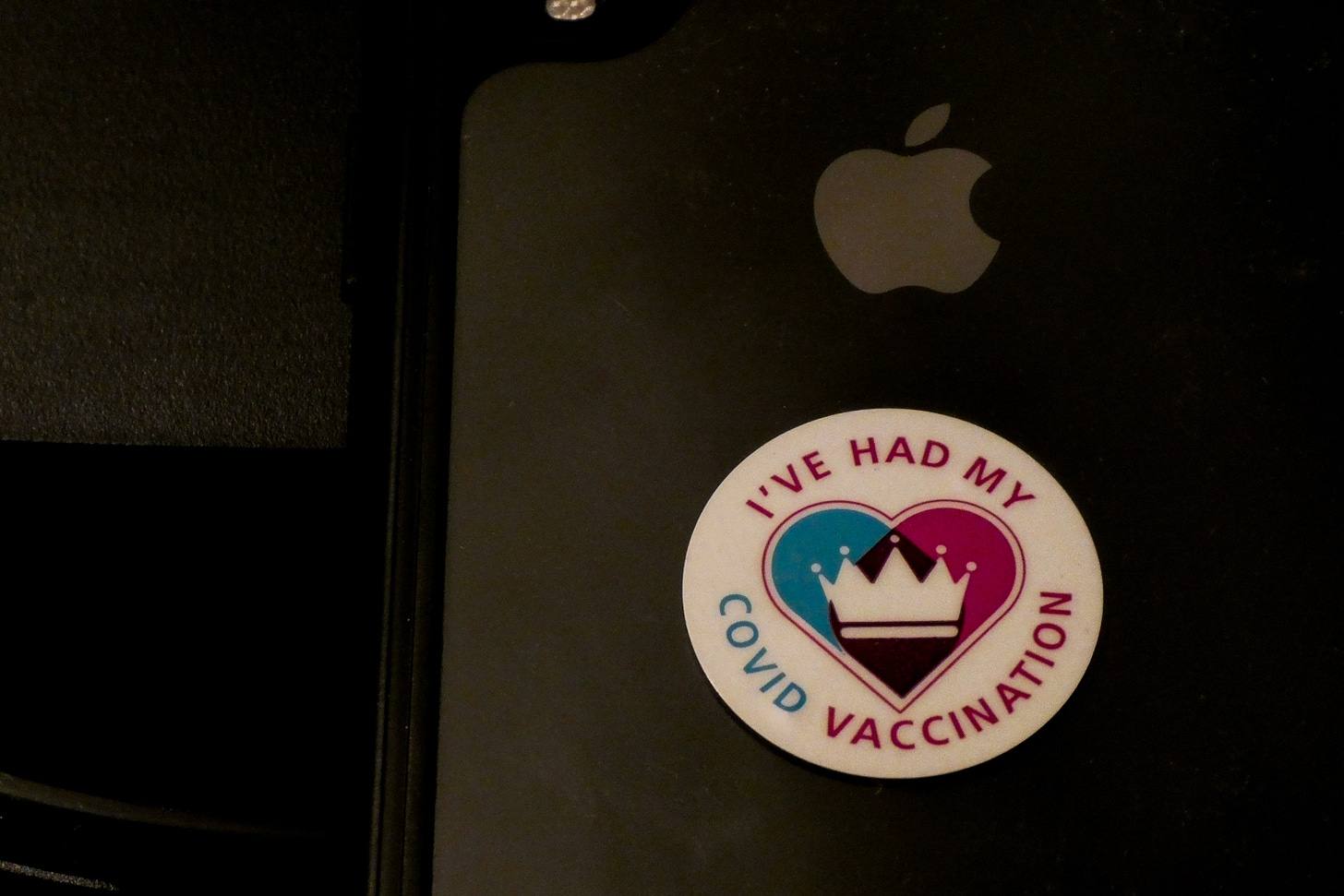From PBS:
My thoughts in italics.
Photo by Nick Fewings on Unsplash
John Yang:
Judy [Woodruff], among religious groups, according to the Pew Research Center, white evangelicals are least likely to say that they intend to get the COVID vaccine.
In Pew's latest survey conducted in mid-February, 45 percent of white evangelicals said they definitely or probably would not get vaccinated. That compares with 30 percent of all Americans and 33 percent of Black Christians — Black Protestants, rather.
According to Pew, about 17 percent of adult Americans identify as white evangelicals.
He turns then to Russell Moore who himself has the vaccine.
This number of white evangelicals not getting the vaccine reveals. Something essential to white evangelicalism prompts them not to get the vaccine.
Russell Moore:
No, this doesn't have anything to do with religious beliefs.
It's instead about the mistrust and distrust that's evident in American society right now. And, plus, I think some of it has to do with the fact that we have been isolated from one another in lots of ways for over a year. And much of the way that misinformation and disinformation gets combated is with people in conversation with one another.
And that's why lots of us are doing what we can to say, vaccination is not only something that's acceptable for Christians; it's something we ought to thank God that we have the technology for, because it's going to get us back to doing the things that we need to do quicker.
I disagree with Dr Moore. It has to do with religious beliefs, and I give two reasons:
(1) evangelicals have a long history of not trusting science, and
(2) evangelicalism and political conservatism, esp of a populist sort, are so tied together that one cannot distinguish politics from religious belief.
Had Donald Trump not gotten into his mindless scuffles with Dr Fauci and the scientific community we would not be seeing 45% against the vaccine. This must be pointed out, and it’s politics.
Had he been 100% gung-ho in favor it we might have a sizable number of Democrats against it! That’s politics, too.
Yes, I agree mistrust is at the heart of this. But that mistrust locates itself in a combined worldview that is both religious and political. To empty religion here is mistaken.
Russell Moore:
Well, I think we have to make very clear the government isn't forcing people to get the vaccine.
Instead, this is something that's in not only our own best interests, but also in that of our neighbors. We have really good scientific data on the vaccines. And I think some of the hesitancy that we saw in that clip may be overcome just as people start to see their neighbors being vaccinated and to see the fact that this isn't scary.
This is, in fact, something that's helpful, and helpful to protect the people who are the most vulnerable around us. So it's not just about protecting oneself.
Yes, yes, yes. Being vaccinated is for the common good, it is for others and for ourselves.
John Yang:
Is — I take it from what you're saying that a government push to try to reach evangelical Christians could actually backfire.
Russell Moore:
Well, it could if it's too heavy-handed.
I think that the emphasis ought to be on what's possible, if we get vaccinated in large numbers, the way we actually can get back to — we disagree on so many things in American life right now. And we're at each other's throats on so many things.
But there are some things that we actually can agree on. And part of that is, we want to be together again. We want to be able to get as close back to normal as we can. And that's probably especially true for people who are religious communities, because we believe we ought to be congregated together.
And so I think emphasizing the positive is the best way to go.
Perhaps so but I doubt it. Two observations:
Those ignoring the vaccine science are precisely those who are already congregating. That argument will not work with the group most in need of the change.
And, let’s not forget: humans are not entirely rational, and sometimes humans are not rational at all. This is more about politics and power and group-mindedness and tribalism than it is about persuasions and arguments and evidence.





I agree with many of your reflections. Let me also point out one more observation. I was a part of the Christian homeschooling community for 6 years before my kids started public school last year. There are many white evangelicals that have been a part of the anti-vax movement for years before the pandemic. The pandemic has given them a very large platform to voice their opinions and they've felt validated by widespread acceptance of conspiracy theories.
I am a participant in the phase 3 Pfizer trial, so I am trying to pass along science based knowledge. Some evangelicals are actually looking for truth amidst the rhetoric. But many have already been swayed away from vaccination and it's way too late for an impact now.
I watched this interview. The statistics are deeply disturbing. In our county only 12% are fully vaccinated. The vaccine has been readily available. People just don’t want to get it. We live in the highest Trump voting county in TX. Unfortunately our Governor has not helped the situation. I think there is going to be a deeper impact in the churches than people realize.